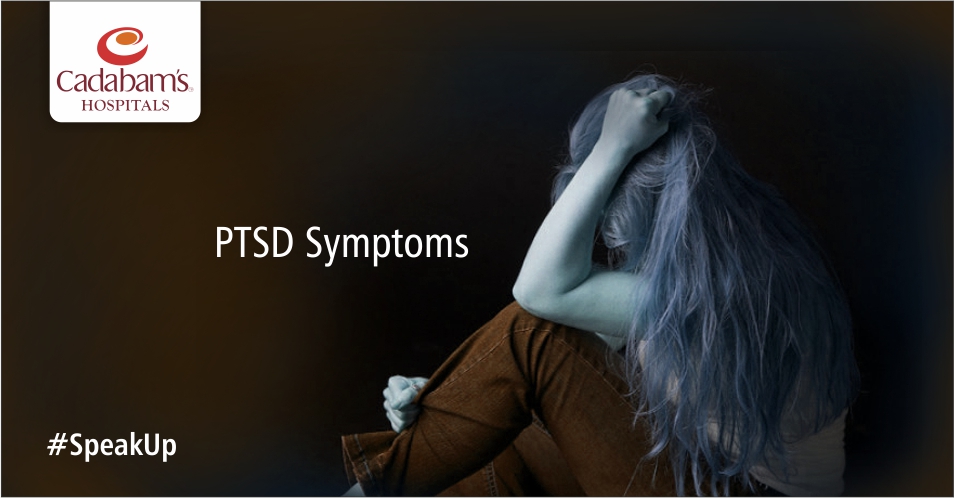Table of Content
PTSD or Post Traumatic Stress Disorder is a condition in which the patient experiences extreme mental distress due to a past traumatic event. It is a serious mental condition that results after a person has experienced a traumatic event such as physical harm, threat to life in the past, abuse amongst others.
It is a lasting consequence of traumatic ordeals that cause fear, helplessness, guilt, or a sense of horror in the mind. For some, these reactions may go away with time but for others, the signs and symptoms of post-traumatic stress disorder continue to increase and become so intense that it disrupts normal life.
People suffering from these symptoms may relive the event through flashbacks or nightmares and become socially alienated. They avoid situations or people that can bring similar reactions to their minds.
What is a traumatic event that triggers PTSD?
A traumatic event is an incident that triggers emotional, physical, and psychological changes. Examples of things that can trigger PTSD include sexual or physical assault, an accident, the unexpected death of a loved one, war, or natural disaster.
A person experiencing the distressing event may feel threatened, anxious, frightened, in response to the traumatic event. Even after years, the incident keeps on persisting as a flashback or a memory, hampering the quality of life of the individual. They may not be clear of how to respond or perhaps stay in denial about the event for the rest of their life. They need support and care to recover and gain mental and emotional strength.
PTSD symptoms
The signs and symptoms of post-traumatic stress disorder may appear sooner or later in life and the intensity can vary from person to person.
The signs are grouped into four types: intrusive, avoidance, negative changes in thinking and mood, alterations in arousal, and reactivity.
- Intrusion: Intruding memories such as repeated flashbacks, memories, dreams of the traumatic event. The memories can be so lucid that people believe they are re-living that event once again.
- Avoidance: Avoiding members who were a part of the event and this is true for places, situations, activities, and objects. They may resist talking about the event or their feelings.
- Changes in mood: Most people with post-traumatic stress disorder symptoms may have difficulty remembering the important aspects of the event. They may self sabotage, turn to binge drinking or drugs to overcome the guilt, anger, horror that is associated with the event.
- Alterations in arousal and reactivity: Being angry and frightened, being startled, using self-destructive behavior such as substance abuse, trouble concentrating or sleeping, irritability, angry outbursts, aggressive behavior, etc.
Impact of PTSD
PTSD increases the risk of developing other mental disorders the impact of which can be life-endangering as well. Some of the morbidities linked to PTSD are Depression, Social isolation and withdrawal, Separation or divorce, Substance abuse, Cardiovascular disease, Autoimmune disease, Eating disorders, Suicidal thoughts and behaviors.
Primarily, it takes a toll on your mental health. The effects of PTSD on the brain functioning are many, including feelings of guilt, angry outbursts, emotional numbness, trouble sleeping, and disturbing flashbacks. The patient may also lose interest in things that they enjoy and may avoid things that remind them of the traumatic event. In short, it can interfere with your life, making it harder for you to solve problems, communicate, and trust. Experts say that one can feel better or worse over time. Because the event had a traumatic impact on the brain, constructive therapy combined with medications can be beneficial.
We, at Cadabams, understand how PTSD can affect the daily life of the person suffering and their loved ones. We believe that early identification and timely treatment can help in proper management of these negative symptoms and help the individual lead a happy and healthy life.
We have over decades of experience, a multispeciality team of experts, renowned Inpatient and Outpatient services, and an evidence-based treatment approach for people experiencing PTSD symptoms. We mostly rely on therapeutic interventions including psychiatric services and one-on-one counseling to help you cope with and overcome PTSD disorder. If you or your loved one is showing these symptoms, reach out to us on our 24x7 helpline +91 9741476476 and our professionals will guide you and build a treatment plan catering to all your needs.
PTSD FAQs
Q1: Does PTSD affect children?
Yes, PTSD can affect people of any age. A child can experience PTSD due to any kind of violence, emotional trauma, abuse or any such scarring incident. In case of children, timely treatment can do wonders and can help in minimising chances of them developing any other psychiatric or mental health disorders.
Q2: When you should see a doctor?
If you have disturbing thoughts and feelings about a traumatic event for more than a month, talk to a mental health professional and get medical intervention as soon as possible. If avoided, PTSD may lead to harm, either to the individual or to others in the environment.
Q3: How long does PTSD last?
In some cases, if the treatment is not initiated, PTSD can last for a very long time. Probably it can last one’s life while for some people relapse is very low and the signs gradually fade over time.
Q4: What are the treatment approaches?
Several treatment techniques, sometimes combined with one another, are being used for the treatment such as Anti-anxiety medications, Cognitive behavioral therapy, Exposure therapy, among others are used.
How Cadabam's Help you for Addiction?
- 410+ Professional Consultants
- 1,00,00+ Happy Faces
- 120+ Currently Seeking Treatments









